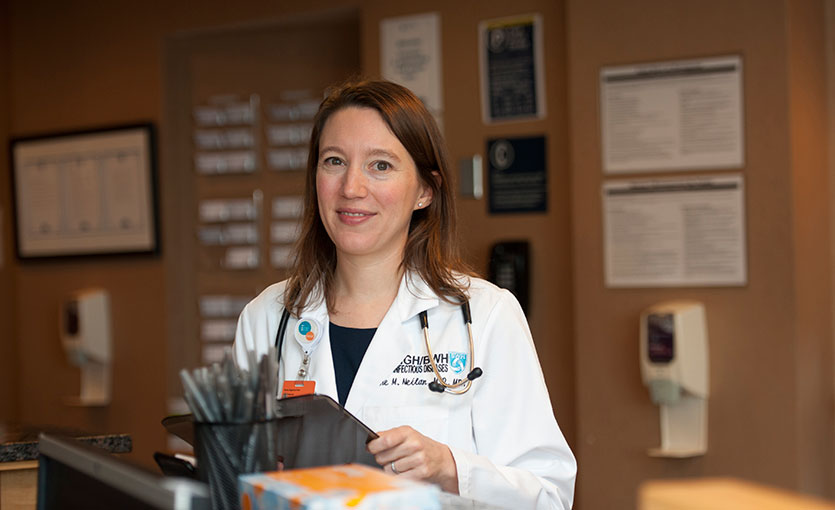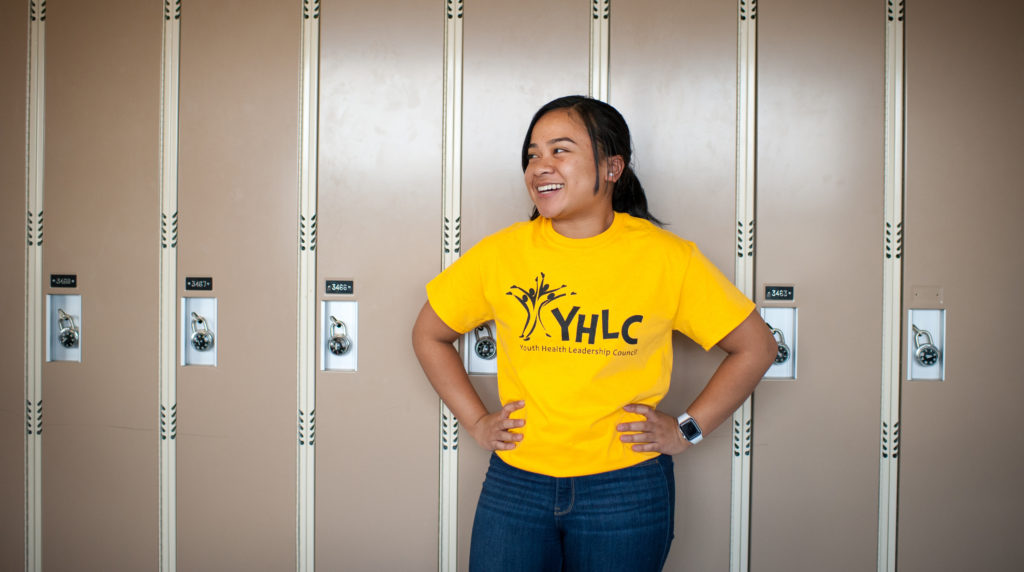New research from Massachusetts General Hospital shows that U.S. teenagers and young adults with HIV are struggling to stay healthy despite major improvements in treatment for people with the virus.
Extra help is needed to keep teenagers and young adults with HIV engaged and invested in their medical care.
“Youth with HIV are some of our most vulnerable of patients,” says Anne Neilan, MD, MPH, co-author of the study and a clinician with the Mass General Division of Infectious Disease and the Medical Practice Evaluation Center. The study looked at data on more than 1,400 children, teens and young adults nationwide.
Researchers found that those ages 13 to 30 had poorer control over the virus and more HIV-related illnesses and deaths compared with younger patients. The study was published in the Journal of the American Medical Association by Dr. Neilan, Andrea Ciaranello, MD, of the Division of Infectious Disease and George Seage III, DSc, of the Harvard School of Public Health.
From the early teenage years through the late twenties, youth experience complex social, mental and physical changes. “Teenagers and young adults often have difficulty adhering to regular medical appointments, daily medications and periodic tests that are required to keep the virus suppressed,” Dr. Neilan says. The transition from a pediatric clinic where patients have been followed for their entire lives, to an adult clinic without teenage-friendly services can be an abrupt change. That’s why extra help is needed to keep young people with HIV engaged and invested in their medical care.
A Teenager in Crisis
One young woman who visits Dr. Neilan at the Mass General clinic got HIV from a blood transfusion when she was being treated for cancer as a baby. While her cancer was cured, the HIV infection remained, adding to her complex teenage years with issues of stigma, transmissibility and required medical adherence.
“She has met this challenge with amazing strength and serves as a stellar example of what is possible.”
After years of ups and downs with her medical care and personal life, she began coming to Mass General’s Infectious Disease Outpatient Practice. Her new doctors put her on a newer, simpler and less toxic regimen of pills which helped stabilize her condition. A new foster mother brought stability to her life.
The woman, who is now 36, is married and working as a homemaker for disabled older people.
“She has met this challenge with amazing strength and serves as a stellar example of what is possible,” Dr. Neilan says.
Many of today’s young people with HIV were born with the virus or acquired it in early childhood. No cure has been found for HIV although consistent treatment with antiretroviral drugs can keep them healthy.
Young People Living Longer with HIV
Today, fewer children become infected with HIV in the U.S. because of strict screening of donated blood and better antiretroviral drugs, which prevent transmission from mother to child at birth. More effective drugs are also helping young HIV patients live longer. There are now about 10,000 young people over age 18 in the U.S. living with HIV acquired around the time of their birth.

Mass General’s Infectious Disease Outpatient Practice has recently been taking steps to make its services more inviting for young people. Dedicated adolescent HIV care can help provide a continuity of care for teenagers who are transitioning away from medication regimens designed for children into those designed for adults, Dr. Neilan says.
“We know and understand that the developmental complexities of teenagers and young adults translate into difficulties in staying engaged in medical care,” she adds. “The data definitely demonstrates this, and it is here where we want to intervene.”
With additional resources from philanthropic support, social workers trained to work with teens and young adults could provide guidance about emerging social and sexual relationships, which pose unique challenges for young people with HIV.
Support for drop-in services and evening or after-school hours could help keep young patients engaged, coming to the clinic and taking their medications. Clinicians at the practice recently began seeing patients after sexual assault as young as age 13 for HIV prevention.
At the same time, a major research effort is underway at the Ragon Institute of MGH, MIT and Harvard to find new ways to prevent and cure HIV by harnessing the power of the human immune system.
A Message for Young People
The most important message for today’s young people with HIV, Dr. Neilan says, is that you can live a long and healthy life with happy and healthy relationships, with the right support from your medical team. For young people without HIV, there are a wide range of new prevention approaches that are important to ask your doctors about.
For more information or to support Mass General’s work with youth with HIV, please contact us.







